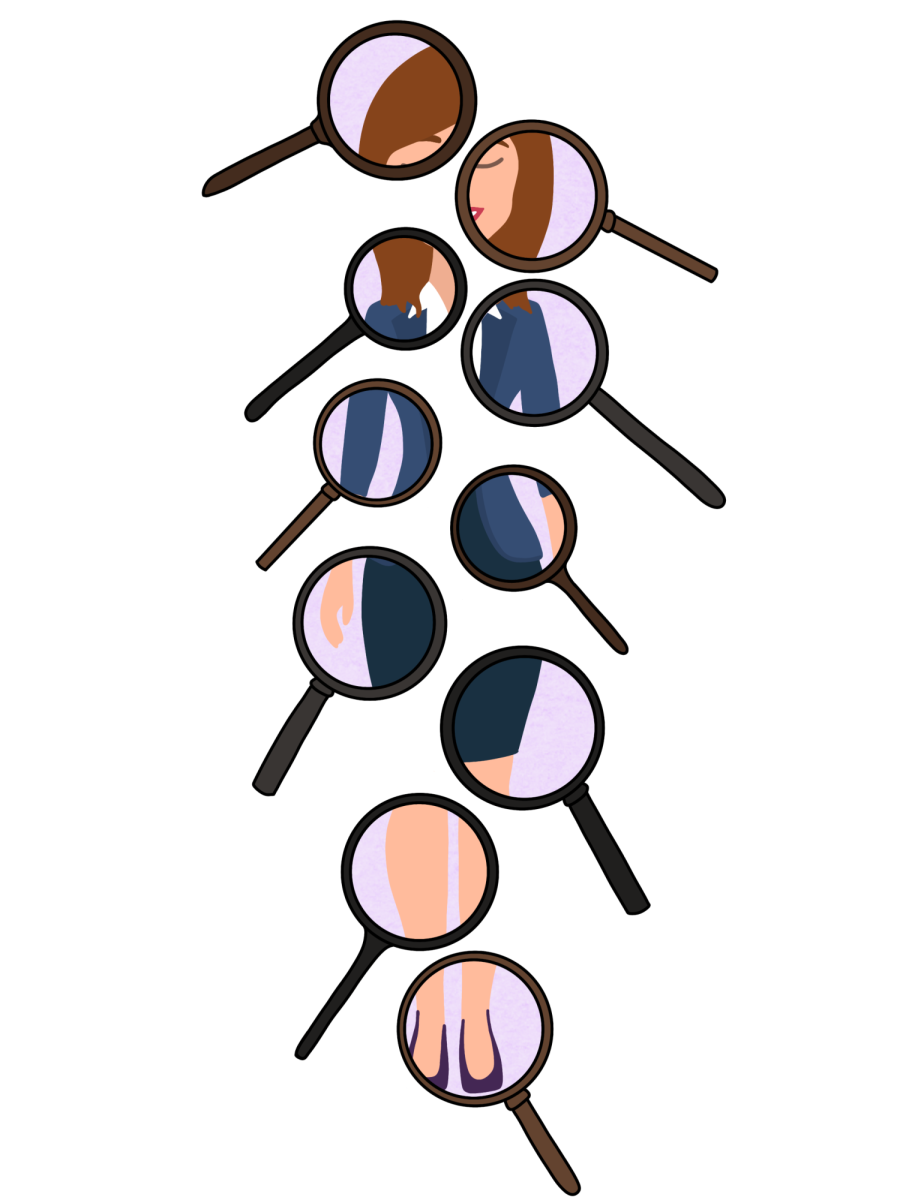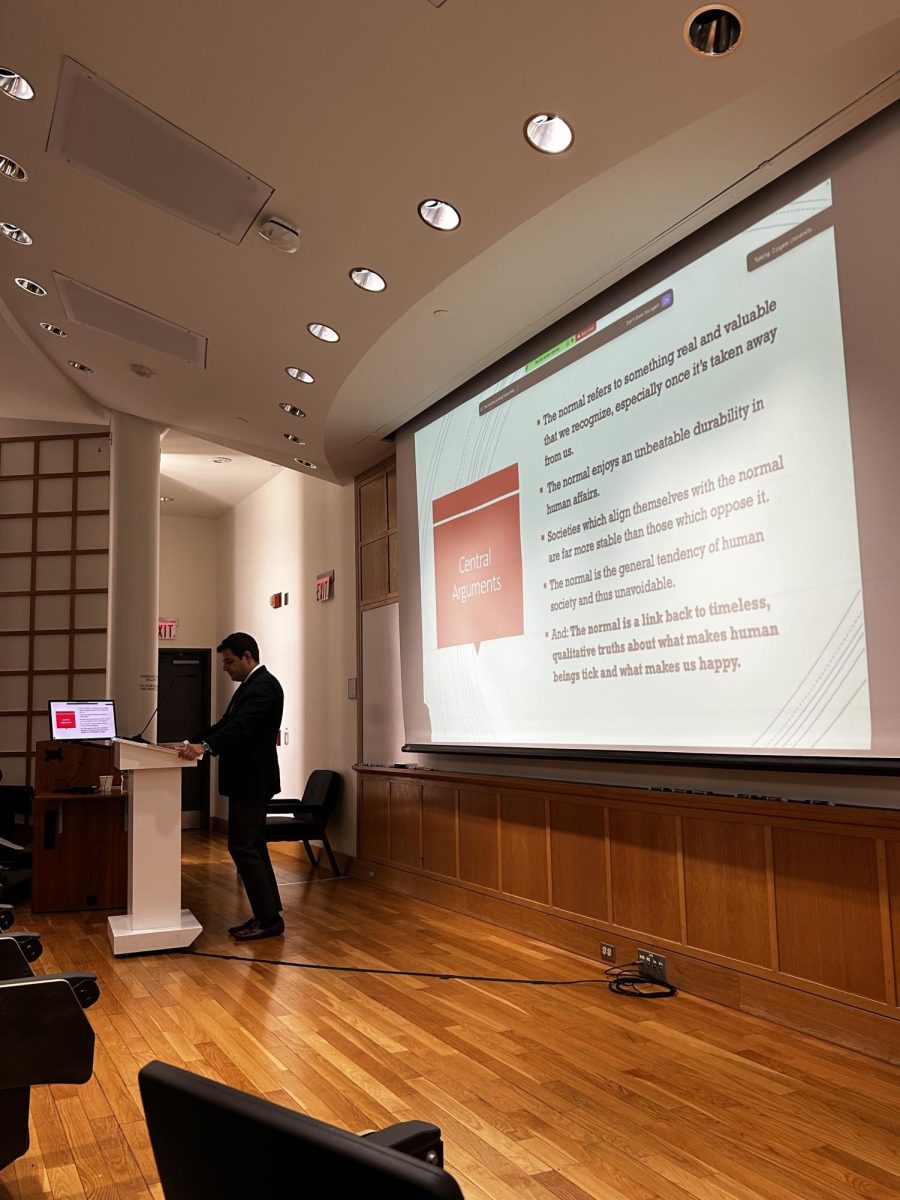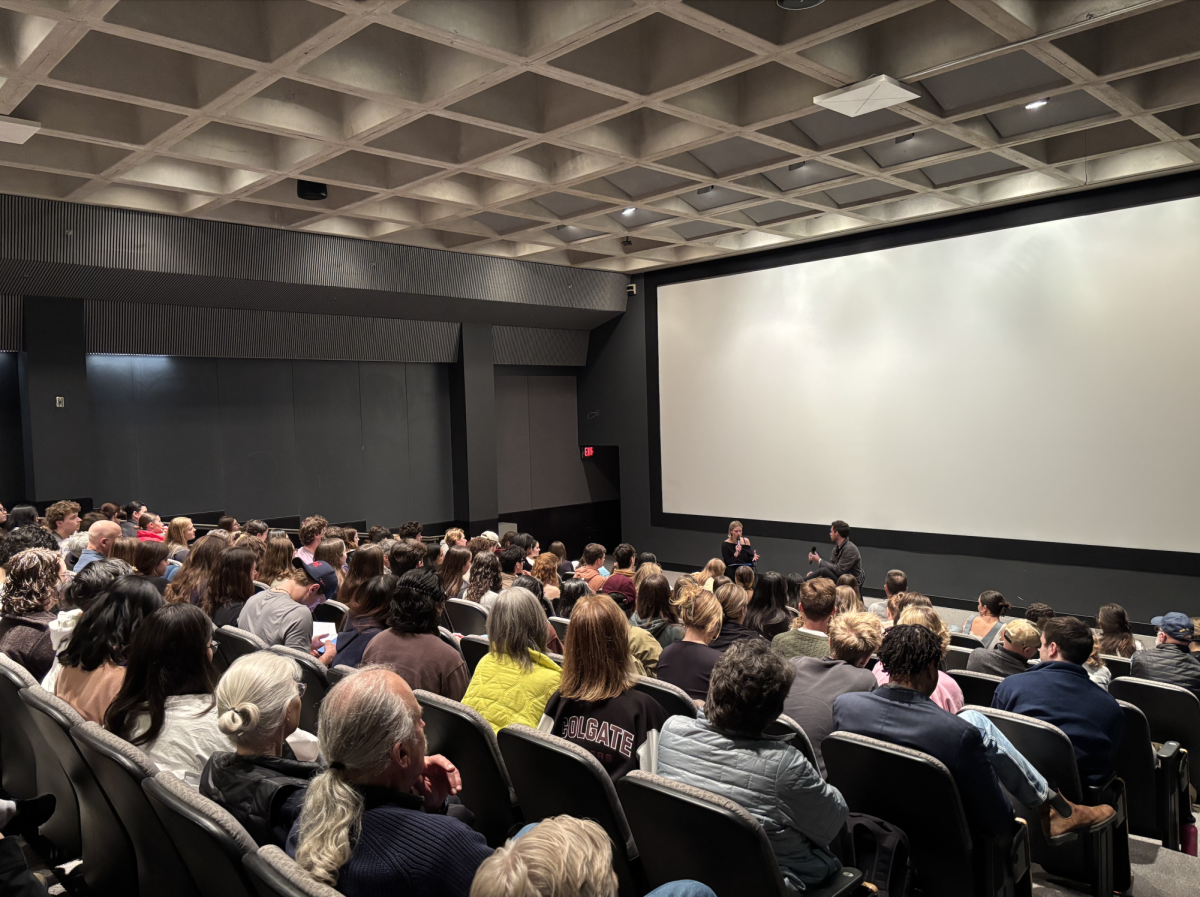Remember when the internet wasn’t always omniscient? The digital world used to be restricted to a backroom or dusty desk in our homes, constricted by a mess of wires and waiting for the dial-up service to start. We didn’t go to school with our phones in our pockets and memorized the bus schedule, mom’s number or which days we had to go to the valet line. We could step away. Even as the 2010’s revolutionized the “smart” era, there was still a playful innocence to our use of technology; it still could be put down or left behind. But now, it doesn’t seem like we can escape it.
The use of artificial intelligence in academics has been a ready concern over the past few years, but what about its ultra-prevalence in the rest of our lives? Now, one cannot type a quick email or send a message without the pestering recommendations of AI. We are bombarded with ads about how AI can ‘revolutionize’ our calendars by creating our schedules, or even how it can count our groceries in the check-out line. What used to be a system of “opt-in, opt-out” seems now to be something unavoidable. Every service and technology seems to be rolling out AI to improve our lives. And now, it is a built-in feature on Apple devices. While the AI revolution may be marketed as a revolutionary change to empower and enrich our lives, have we seriously considered the repercussions?
The principal problem of AI I perceive is our reliance on it for trivial means. Sure, we may not need to know the population of Albany, NY., off the top of our heads or write every quick follow up email, but triviality is important. Though the Pew Research Center has found that AI can improve our lives, they have also highlighted the danger that they surmise would “threaten human autonomy, agency and capabilities.”
I second this concern, and am astonished no one seems to question the blatant dangers of handing over so much of our own power to a non-living thing for the sake of ease. Credit card companies already sell your purchase information to third-party advertisers — could you imagine what they could do with your daily schedule? Are we really willing to forfeit all of our texts, emails, photos and personal information to third parties for the sake of saving five minutes searching a fact or summarizing a paper?
Beyond the worries of how our personal information is handled, there is also cause for concern when it comes to our intelligence. A peer once argued against me that using ChatGPT was good for his education because it gave him time to focus on his classes instead of homework, which he classified as “busywork.” I think it’s safe to say that the view of all and any classwork as “busywork” is more detrimental to one’s own good than it is apathetic. Regardless, what kind of professional world will we have when we view all work as tedious? Will we trust doctors too disinterested in doing research? The lawyers whose time is too precious to review the law?
By no means do I wish to sound self-righteous in this view. A study published in the “Humanities & Social Sciences Communications” journal found that the use of AI has a profound effect on laziness, limits and rapidly decreases capacity of thought. It will limit intuitive analysis and critical thinking, contribute to general laziness and decrease fulfillment in life.
Overall, I adamantly believe that the further proliferation of AI in our daily lives will only negatively affect us as we desperately try to reap the benefits of our labor for the littlest reward possible. We must seek to reduce the use of AI and our lives and actively reject all corporate attempts to normalize it. After all, what is the value of a beautiful eulogy or intimate letter you didn’t write, or an artwork that you didn’t even lift a brush for?
AI may introduce ease into our lives but we cannot allow it to become our lives. If every action we do is dictated by something besides ourselves, we will ultimately end our lives having done, accomplished and — most terribly — experienced nothing at all.


















